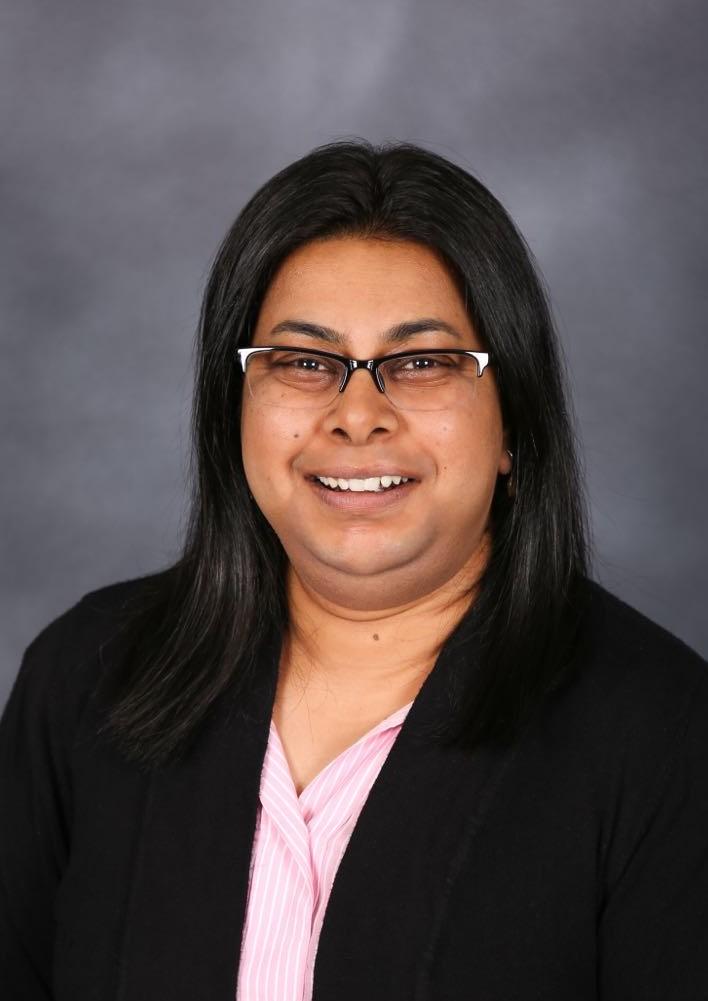
Mishy Roy, MD, MHA, was drawn to neurology from her first exposure as a medical student. The field’s intellectual challenges and the enthusiasm of her teachers helped, but the camaraderie and connections she built with her patients convinced her to make the final choice. For this week’s “spotlight” interview, the second-year (or PGY-2) resident talks to us about the most gratifying moments in her training so far, how her master’s of health administration degree complements her medical training, and what what she most is looking forward to at the end of the COVID-19 pandemic. She also discusses the four-year relationship she built with a couple living with dementia as a medical student and what she learned from the experience.
What are your current responsibilities as a PGY-2 resident? What does a typical day look like for you?
My responsibilities as a neurology resident varies depending on the different subspecialties I am rotating with. I am currently on an outpatient neuro-oncology rotation. I usually see patients and their families at clinic and work with different attendings. I attend the Neuropathology conferences, and work with Radiation oncology at their clinics. My typical day starts at 8 a.m and ends approximately by 5 p.m. So essentially, I get to live a normal life for this week!
How and when did you first get interested in neurology? What interests you the most about the field?
There is a whole spectrum of reasons why I got interested in neurology. There is a strong academic interest, core skill sets, and very strong personal and professional influences. I first became interested in neurology during my first year of medical school with the neuroscience classes. The neurologists I worked with (including residents and fellows) really loved what they did, and their enthusiasm rubbed off on me. I could easily see myself working alongside them, learning from them, growing as a person.
My most gratifying moments were during neurology rotations. I loved the easy camaraderie I shared with patients and their loved ones; and I loved the challenges of complex decision-making/localization processes. But I think that the most significant reason for choosing neurology is that it is so much a bed-side specialty - so much about careful and active listening, observing, and communication to get the story right. And I realize this is what I’m good at. So it just feels right.
In addition to your MD, you also have an MHA. What was the focus of this degree, and how does it complement your interests in neurology?
My graduate training and work experience in healthcare administration came at a perfectly exciting time when The Affordable Care Act was making dinner table conversations; and I was somewhat able to grasp the complexity of the healthcare system and the challenges of healthcare in this country. My focus, both as part of grad school training and work, was mainly on quality assurance/process improvement. I worked on developing different utilization/care management models with a strong focus on transitional care and developing care models to seamlessly integrate existing services of the community hospital I was at, into a certified medical home model.
I believe that this kind of training and experience gives me a broader understanding of cross-cutting healthcare issues; and positions me better, for developing/implementing care models that fundamentally change the way our patients with chronic neurologic conditions interact with the world.
You also spent time with families living with dementia while earning your MD. What was that experience like, and what did you learn from that time?
The first year of med school, I was a participant in the program (“Partners in Dementia”) where I was paired with Marv and his wife Elaine (see pictures below). After that, I led the project for 3 years before finally moving to Duke. It was, by far, the most rewarding time during medical school. The goal of this project was to understand the impact of experiential learning, outside of the classroom, on medical students’ perspectives, and how those might change over time. We wanted to see what kind of observations students make after spending a year with the families, and whether this would be a meaningful experience to cultivate a holistic view of the patient mentor as an individual with an amazing story to share.
My personal relationship with Marv and Elaine is hard to describe. So much laughter and love and warmth! I was completely embraced by this family going through their own share of despair, but ever willing to give. Elaine’s resilience never ceases to amaze me! And Marv, who is often unable to hold onto a train of thought, creates magic when he plays the piano, or sings! I learned that the ability to understand and express lasts longer than the ability of speech. If only people would stop to listen. This is an active area of interest to me - to explore the creative aspects of people who live with neurodegenerative conditions and study the effects on downstream quality of life in those who engage in creative endeavors.
What are you most looking forward to once the COVID-19 pandemic is over?
To travel! To be free to travel!
What other passions or hobbies do you have outside of the Department?
Photography, music (vocals mostly; dabble somewhat with keyboards), and blogging defined me for the most part until I joined residency of course! I don’t have much time these days, but whenever I can, I like to take off with my camera. I intermittently work with a New York based organization (Positive Exposure); basically the goal is to utilize photography to transform the public perception of people living with genetic, physical, and intellectual differences. My dream project is to work on a similar set up but with people living with neurodegenerative conditions. The idea is to create a world where differences are embraced.
Above, Roy enjoys the Oregon coast, and below, poses with Marv and Elaine.
